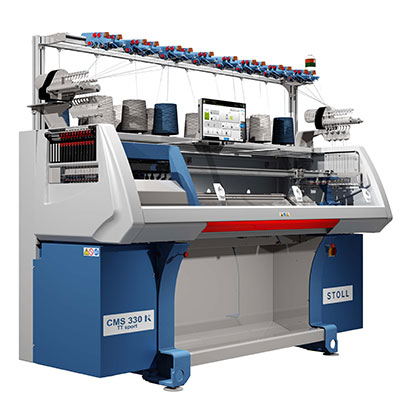FW
Under the proposed Preferential Trade Agreement (PTA), the Bangladesh government will finalise a list of 300 products for seeking duty-free market access to Indonesia.
The Ministry of Commerce (MoC) has completed consultations with the stakeholders and received recommendations from the Export Promotion Bureau (EPB) of Bangladesh.
After finalising the list, the MoC will send it to Indonesia through the Ministry of Foreign Affairs, seeking approval by the Indonesian government.
Jute and jute goods, leather and leather goods, pharmaceuticals and garment items are some of the products named in the list.
The two countries are working on signing this PTA to boost bilateral trade and promote trade and economic partnership between the two countries. The bilateral trade between Bangladesh and Indonesia is expected to increase by fivefolds to around $10 billion in next 10 years, according to the sector insiders.
Increasing consumer awareness about the negative impact of the clothing and textile industry on the environment is one of the reasons volumes have started to decline.
Consumers have been buying clothes in ever-increasing quantities over the past 20 years as fast-fashion retailers such as H&M and Zara and budget retailers including Primark and Walmart cut prices after shifting production to Asia. So apparel markets in many developed countries may now be entering a lengthy period of structural decline.
Earnings forecasts for the world’s largest clothing retailers – led by Asos, Zalando, Macys and Marks & Spencer – have been downgraded by almost 40 per cent since the beginning of 2016. If clothing volumes are plateauing in developed countries, the only way the apparel markets there can grow is if clothing prices go up. But these are likely to fall as production continues to shift from China to lower-cost countries in the region such as Vietnam and Bangladesh. US clothing prices have fallen by 0.8 per cent a year since 2001, while UK prices fell for 13 consecutive years until 2010.
Flickstree Asian Designer Week (FADW) was held in Delhi NCR, October 4 to 6, 2019.
The event combined fashion with business. It provided a comprehensive platform for creativity and business in the world of fashion as it hosted more than 40 designers who presented their collections on the ramp. Five buyers as panelists discussed the opportunities in the retail/export business. The discussion opened up avenues of exports for Indian designers who have been hitherto limited to their clientele. The panel had social media influencers who debated about the pressure of communication through the social media and the role it plays in today's fashion business. Influencers were also part of the ramp show that followed the panel discussion.
Fashion start-ups that had come up with pitches for angel investors included 6 Degree (a fashion tech start-up), The Knotty Tales (a tech enabled wedding platform), DROR (a women’s safety app), and Eunimart (a cross border trading enabling platform for medium and small enterprises). They made impressive presentations for their business and sought a second round of funding from the 100-odd investors present in the audience.
Apart from the runway shows, FADW provided a B2B exhibition space for designers to showcase their work and engage with potential buyers.
The exports of crust leather from Bangladesh experienced a negative growth rate of 25.46 per cent during the July–September period of fiscal year 2019-20 as compared to the fiscal year of 2018–19.
According to the Export Promotion Bureau (EPB), the sector registered a negative growth rate of 5.06 per cent, resulting in earnings of US$ 254.39 million during the July-September period of FY 2019–20. This figure was US$ 267.94 million during the same period of the FY 2018–19. Most of the tanneries that have been shifted to the Savar Tannery Complex from Hazaribagh have not fully functional yet which is one of the prime reasons behind the negative growth.
The renowned leather producers of Bangladesh are moving towards artificial and non-leather products to address the global demand as leather prices went up in the world market since 2013. Bangladesh generally exports leather products to countries such as South Korea, China, and the European Union, among others. But they have started using artificial leather products, which are more affordable and lead them to import fewer products from Bangladesh.
Around 155 factories have been shifted to Savar. Of these, 125 factories are running and 25 tanneries have fully started their operations but are processing only crust leather. This sector is not getting the advantage of the Central Effluent Treatment Plant (CETP) and is struggling hard to achieve global standards in terms of compliance. Only leather footwear registered a negative growth rate of 9.28 per cent, resulting in earnings of US$ 159.23 million.
 H. Stoll AG & Co. KG will participate in Futuremoda exhibition for leather and footwear industries that will be held in Spain from October 16-19, 2019. The company will exhibit two CMS 330 TT sport BW machines in gauge E7.2 in Hall A
H. Stoll AG & Co. KG will participate in Futuremoda exhibition for leather and footwear industries that will be held in Spain from October 16-19, 2019. The company will exhibit two CMS 330 TT sport BW machines in gauge E7.2 in Hall A
In 2018, the Futuremoda exhibition served 288 trade fair exhibitors as a forum to introduce their company, their products and services. Its key exhibit areas included footwear and leather goods, shoe machinery and technology, skins and leather, design and pattern, synthetics, supplies, chemicals and premade products.
Stoll AG & Co. KG, with headquarters in Reutlingen is one of the world’s leading manufacturers of flat knitting machines. The long‐established company was founded in 1873 and has 1,000 employees around the world. The brand’s portfolio includes flat knitting machines and pattern software that are used to produce fashion and technical textiles. It exports its products to more than 50 countries worldwide.
With a network of subsidiaries, sales and service centers and numerous agencies, Stoll offers a fully integrated service package. With innovative developments and state‐of‐the‐art production, it makes a multitude of knitting trends possible.
Global yarn production increased by 17 per cent between Q4/18 and Q1/19. Most of this output was recorded in Asia and Brazil both of which registered a 18 per cent growth. The USA on the other hand recorded a 3.2 per cent growth and Europe recorded a growth of 1.6 per cent.
This overall growth in Asia was due to a 27 per cent increase in Chinese yarn production which outperformed the contraction registered in Japan, India and Korea. A decreasing trend was further observed in South Africa and Egypt.
The growth in Asia is driven by the increase of yarn stock in Japan and India, stability in Pakistan and decrease in Korea, Rep. and Chinese Taipei. Yarn orders in Brazil increased by 18 per cent, in Egypt by 11 per cent, and Asia by 9 per cent. Forecasts for the second quarter of FY 19 in Japan, Chinese Taipei, and Turkey are optimistic as global yarn stocks have increased by 6.3 per cent worldwide. This is a results of a 27 per cent improvement of stocks in Egypt, 7.7 per cent increase in Brazil, and 3.8 per cent increase in Asia.
However, production in Europe shrunk by -0.85 per cent with the biggest drop registered in Spain. A strong decrease of -42% was also witnessed in Egyptian fabric production. The world output level has now reached 88 per cent of its Q1/18 level. These levels are expected to further decrease in Q2/19 in Asia, Africa, and Brazil, stay constant in the U.S.A. and increase in Europe. Production should stagnate in Q3/19 in all regions but Asia, which should register an improvement.
The global fabric stock level has stagnated between Q4/18 and Q1/19. This resulted from raises registered in Egypt and Brazil and decreases of -1 per cent to -2 per cent observed in Asia, Europe and the U.S.A. In Q1/19, global fabrics stocks were 1 per cent above their Q1/18 level. Global fabric orders have dropped by 19 per cent in Q1/19, led by a decrease of 32 per cent in Egypt and 25 per cent in Brazil. However, global fabric orders increased by 8 per cent above their Q1/18 level.
The Freudenberg Global Technology Group has acquired the activities of the startup FRICTins GmbH from Wolnzach, Germany – including FRICTins’ innovative technology to increase the friction coefficient. This allows lightweight and more compact component designs as well as the transmission of up to 5-times higher torque and shear forces. These features are of critical relevance in applications within E-mobility and its increasing performance requirements regarding the connection of parts.
This technology combines a unique hard-particle coating process with a special nonwoven from Freudenberg. It is utilized by automotive manufacturers and suppliers in engine, chassis and powertrain applications.
It generates an increase of the friction coefficient up to a factor of 8. This allows for a significant improvement in the performance of screw joints and press fits. By increasing the friction coefficient in such a way, many new and innovative material combinations become possible.
Currently, the products are manufactured in pilot production scale in a facility near Munich (Wolnzach), Germany. Freudenberg has acquired all assets and will set up an industrial scale production within the next few months.
The patent pending solution is using a multi-step-process to coat hard particles in various dimensions onto the surface of a special nonwoven. When applied in the friction joint, the hard particles penetrate into both parts of the joining components and create a micro interlock. Compared to existing technologies on the market, FRICTins’ technology offers a greater flexibility in the design process, e.g. due to lower material thickness, while also providing a much higher friction coefficient. By using 100% inert materials, this new technology cannot cause any corrosion between the joining parts.
Freudenberg Performance Materials is a leading global manufacturer of innovative technical textiles offering differentiated value propositions to a broad range of markets and applications such asapparel, automotive, building materials, energy, filter media, healthcare, hygiene, building interiors, shoe and leather goods as well as specialties. In 2018, the company generated sales of more than €920 million, has 23 manufacturing sites in 13 countries and more than 3.600 associates. Freudenberg Performance Materials attaches great importance to social and ecological responsibility.
"Launched by the Italian Ministry for Economic Development (MiSE) in collaboration with Sistema Moda Italia (SMI) and International Business Machines Corporation (IBM), an American IT company, the Textile Blockchain Project is currently facing a crisis as the time for its implementation is fast running out. The project is currently on a standby following a government crisis that led to the change of executive in the country."
 Launched by the Italian Ministry for Economic Development (MiSE) in collaboration with Sistema Moda Italia (SMI) and International Business Machines Corporation (IBM), an American IT company, the Textile Blockchain Project is currently facing a crisis as the time for its implementation is fast running out. The project is currently on a standby following a government crisis that led to the change of executive in the country. However, prominent industrialists like the confindustria associations believe that the project is on the right tract although it is taking a lot of time.
Launched by the Italian Ministry for Economic Development (MiSE) in collaboration with Sistema Moda Italia (SMI) and International Business Machines Corporation (IBM), an American IT company, the Textile Blockchain Project is currently facing a crisis as the time for its implementation is fast running out. The project is currently on a standby following a government crisis that led to the change of executive in the country. However, prominent industrialists like the confindustria associations believe that the project is on the right tract although it is taking a lot of time.
In future, Blockchain technology is likely to play a vital role in mapping the entire fashion supply chain. It will help companies to map all their textile-fashion productions, starting from yarn through to the final product. Representing a starting point of a wide project, the Italian government plans to extend this technology to all other sectors of Italian manufacturing.
fashion supply chain. It will help companies to map all their textile-fashion productions, starting from yarn through to the final product. Representing a starting point of a wide project, the Italian government plans to extend this technology to all other sectors of Italian manufacturing.
Other technologies to takeover Blockchain’s shine
The feasibility study for textile blockchain project, which focused on the entire supply chain, began in mid-April, and involved, in a first phase, some 30 giant Italian manufacturing firms. The study was concluded before the end of July, when a press conference was also scheduled to present the results. However, this was canceled later due to force majeure. This delay could prove to expensive as other blockchain and DLTs could enter the market soon.
Italian industrialists fear if European companies fail to launch the Blockchain project before other similar technologies are launched in the market, they will have no other option than to adapt to these new parameters.
The US may suspend the October 15 tariff increases on imports from China. This comes as welcome news for retailers, consumers and the global economy. The trade war and the harmful tariffs are weakening the US economy, hurting manufacturers and causing consumers to pay more for everyday items like shoes, sweaters and sporting equipment. Especially the decision to delay planned tariff hikes is welcome news to US retailers and consumers heading into the busy holiday shopping season. The US and China have forged a partial trade deal that would have China agree to agricultural concessions. The agreement is believed to lay the groundwork for follow-up discussions to resolve the greater issues between the two countries, which concern accusations that China has been guilty of stealing intellectual property assets from US companies.
However everything currently being hit with punitive tariffs is still being charged. This means Americans are still being burdened with an additional 25 per cent on backpacks, handbags, luggage, hats, and gloves. It also means that 92 per cent of clothing, 53 percent of shoes, and 68 per cent of home textiles imported from China continue to be charged an additional 15 per cent tariff. These rates are on top of the hefty tariffs already being charged on these products.
WPT Nonwovens has received the Global Organic Textile Standard (GOTS) Version 5 certification.
This makes WPT Nonwovens one of the first nonwoven manufacturers to be awarded with this accreditation. This certification allows WPT Nonwovens to export organic cotton nonwoven materials with one certification accepted in all major markets.
GOTS is the worldwide leading textile processing standard for organic fibers, including ecological and social criteria, backed up by independent certification of the entire textile supply chain. Version 5.0 was published March 1, 2017, three years after the Version 4.0 was introduced and 12 years after the launch of the first version.
WPT Nonwovens is a one stop source for nonwoven fabric. It manufactures and sources spunbond, needlepunch, wetlaid and carded nonwovens from world class global and domestic suppliers. Serving global markets in the medical, hygiene, industrial and filtration sectors since 2008, WPT provides high quality, affordable products that fit the needs of small order customers and large multinational corporations alike. The company meets telecom industry needs with nonwovens specially bonded and treated for reliability and performance in cable wrapping applications. Its precise ability to spool narrow width high-loft nonwoven makes WPT an ideal supplier for feminine hygiene transfer layer nonwovens.












